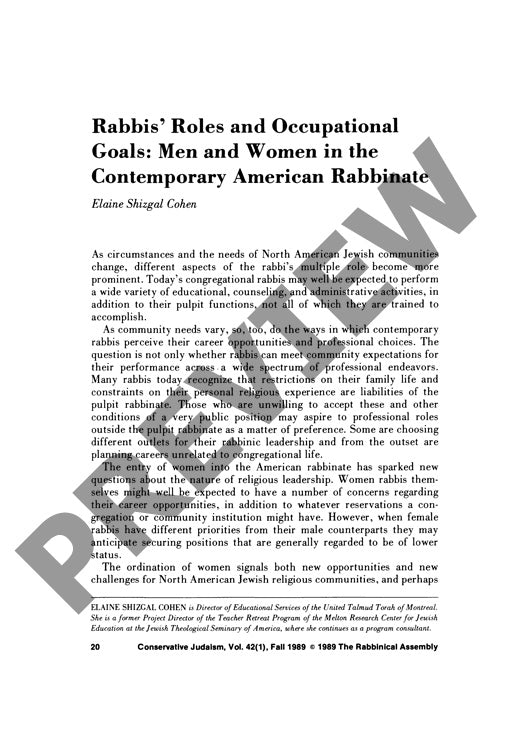Rabbis Roles and Occupational Goals Men
Couldn't load pickup availability
Gender plays a surprisingly limited role in shaping rabbis' core psychological attributes, yet significantly influences their career trajectories within American Judaism. A comprehensive analysis of 226 rabbinical students and ordained rabbis from three major seminaries between 1972-1985 revealed that men and women share remarkably similar personality profiles, scoring equally high on both instrumental and expressive characteristics measured by the Personal Attributes Questionnaire. However, clear gender divisions emerged in occupational preferences: female rabbis gravitated toward pastoral roles, counseling positions, and smaller congregational settings, while their male counterparts predominantly sought larger congregational leadership positions. Factor analysis identified three distinct occupational clusters - Educational and Social Services, Academic and Intellectual Leadership, and Pastoral and Congregational Orientation - with gender differences manifesting only in pastoral-congregational roles. Female rabbis' preference for relationship-oriented positions appears to reflect both authentic value differences and strategic adaptation to available employment opportunities. These patterns carry significant implications for rabbinical training programs and congregational hiring practices as women's representation in the American rabbinate continues to grow.

More Information
-
Physical Description
-
Publication Information
Published
ISBN
-
Publication Credits
Elaine Cohen

